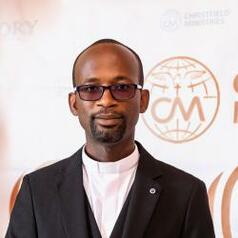
Philip-Neri Jayson-Quashigah
Research Fellow, University of Ghana
Philip-Neri is a research fellow at the Institute for Environment and Sanitation Studies, University of Ghana. His research focuses on nearshore coastal processes including coastal erosion and sargassum beaching with the application of remote sensing/GIS and numerical modelling.
Less ![]()
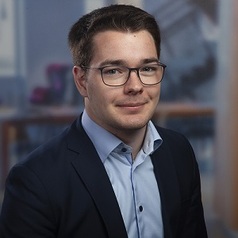
Philipp Schneider
Doctoral Student, EPFL – École Polytechnique Fédérale de Lausanne – Swiss Federal Institute of Technology in Lausanne
Philipp Schneider is a PhD student at the College of Management of Technology. As a Fulbright scholar, he holds M.Sc. degrees in Engineering & Technology Innovation Management and Mechanical Engineering from Carnegie Mellon University. In addition, he holds an undergraduate degree from Hamburg University of Applied Sciences as a corporate student of Airbus. From 2019 to 2020 he worked as Senior Data Scientist at EY in New York City. Philipp’s current work focuses on leveraging data, optimization, and machine learning, to solve practical problems that matter to society.
Less ![]()
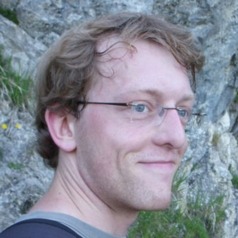
Philipp Winter
Postdoctoral Research Associate in Computer Science, Princeton University
I am interested in computer networks and security, and why the two don't get along very well. I enjoy being part of all phases of a research project—from sketching ideas on a whiteboard, to implementation, and finally deployment and maintenance. To this end, I have worked in the three research areas listed below. I keep maintaining code I have developed in these research projects, so they are open-ended in some sense.
Keeping bad actors out of the Tor network
As communities grow in size, it becomes increasingly hard to keep out bad actors, and Tor is no exception because the network is run by volunteers. In 2013, I started developing exitmap, a fast and flexible scanner for Tor exit relays. If you have a background in functional programming, think about it as a map() interface for Tor exit relays. It allows you to run arbitrary, TCP-based tests over each exit relay. One of the main tasks of exitmap is to expose and block malicious and misbehaving exit relays. I recently broadened my scope to Sybil relays, sets of Tor relays that are under the control of a single entity. I am developing sybilhunter which is meant to assist in finding and analysing Sybils.
Censorship analysis
Early on in my Ph.D. studies, I became interested in the Great Firewall of China (GFW). I was first exposed to the GFW in 2011, when trying to understand how it blocks the Tor network. I have since revisited the topic several times, to understand how the GFW fails over space and time, and how its active probing component is designed. As part of my work on the Tor network, I also helped characterise—and circumvent—a censorship system in Ethiopia.
Traffic obfuscation
Motivated by my work on censorship systems, I became interested in traffic obfuscation, i.e., shaping network traffic in a way that it is hard to classify and block. I started by developing a small tool for server-side circumvention. It was designed to prevent the GFW from recognising Tor handshakes on the wire. The tool transparently rewrites the window size in a SYN-ACK segment, forcing the client to split its initial payload across two segment instead of one. Back in 2012, the GFW would not reassemble TCP streams, rendering it unable to spot circumvention traffic “protected” by this tool. I then went on and developed ScrambleSuit, a polymorphic traffic obfuscation protocol. ScrambleSuit can protect against the GFW's active probing attacks by relying on a “password” that is shared between client and server. ScrambleSuit has since been superseded by the faster and more elegant obfs4, which is no longer maintained by me.
Less ![]()
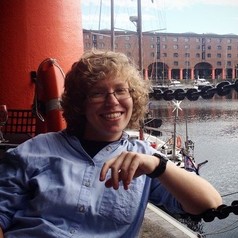
Philippa Byrne
I am currently a British Academy Postdoctoral Fellow at Somerville College, University of Oxford, where I now research the interaction between Arabic, Greek and Latin thought in medieval law, with a particular concentration on the twelfth and thirteenth centuries.
I completed by DPhil in 2014, at the University of Oxford, on the topic of the relationship between theology, scholastic thought and the early English common law.
Less ![]()
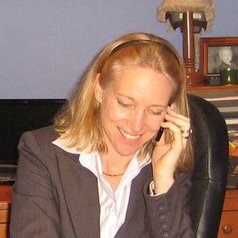
Philippa Ryan
Dr Ryan's area of expertise is commercial equity, in particular the liability of third parties to a breach of trust. Her PhD formulated a new classification for Barnes v Addy liability. Her current research explores breach of fiduciary duty in apparently trustless commercial relationships and self-executing contracts, usually enabled by Blockchain technology. Dr Ryan designed and coordinates a commercial equity elective that examines directors’ duties, Ponzi schemes and the trust as an alternative to a corporate arrangement. Her teaching research investigates how authentic legal processes can improve law students' problem-solving. In conjunction with the UTS Connected Intelligence Centre, she is piloting the use of discourse analytics software to improve law students' legal writing skills.
Less ![]()
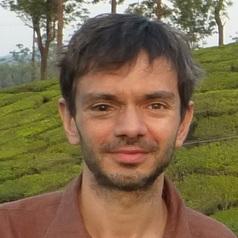
Philippe Brunet
Directeur de recherches CNRS, Docteur en physique, HdR, Université Paris Cité
Physique des liquides, énergie, acoustique, matériaux,
Less ![]()
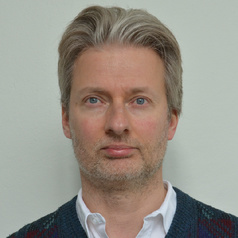
Philippe Burger
Professor of Economics and Head of Department, University of the Free State
Philippe Burger is a 2016/17 Fulbright Exchange Scholar at Columbia University, working on the unemployment problem in South Africa. He is Professor of Economics and Head of Department at the University of the Free State. From September 2012 to October 2014 he was President of the Economic Society of South Africa. He is also a member of the South African Statistics Council, which overseas the work of Statistics South Africa. His publications include three books and numerous academic articles on fiscal rules and fiscal sustainability, public private partnerships and macroeconomic policy. Together with IMF staff he also co-authored two IMF working papers. In 2009 the IMF also invited him to spend a month at the IMF as a visiting scholar. In 2007, 2010 and 2012 he was seconded to the OECD in Paris to work on public private partnerships and capital budgeting, while in October 2011 he joined an OECD mission to Indonesia to conduct a regulatory review of Indonesia. He was a member of the Panel of Experts of the South African National Treasury, in which capacity he recently co-authored a 20-year review of South African fiscal policy since 1994.
Less ![]()
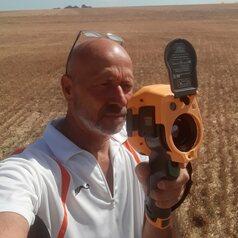
Philippe de Donato
Directeur de recherche au CNRS, Université de Lorraine
Mon activité scientifique se place dans la politique de transition énergétique, animée par trois tendances majeures : les sciences de la terre, le développement durable et les impacts environnementaux. Cette activité concerne principalement les enveloppes superficielles naturelles ou anthropisées avec comme finalité leur éco-utilisation dans la problématique de transition énergétique en lien avec leurs protections durables. Les recherches entreprises se focalisent sur l’étude des mécanismes de transfert et d’interaction des fluides dans l’écosphère. La porte d’entrée dans tous ces systèmes se situe au niveau moléculaire (nm). Cette approche, nécessairement multi échelle, s’articule autour de trois axes de progrès principaux :
- développer une métrologie d’observation et de quantification du transfert des fluides en milieux naturels, pouvant intégrer les trois compartiments : géosphère (-3000, 0m), biosphère (0, 10m) et troposphère (10, 10 000m)
- comprendre les mécanismes d’interaction fluides - solides et leurs transports dans les différents compartiments affectés,
- interpréter ces phénomènes d’interactions et de transfert en termes de modèles 2D/3D d’échange intra et inter compartiments.
Ces recherches trouvent naturellement leurs applications dans le domaine de l’utilisation pérenne et responsable du sol et du sous à des finalités énergétiques à savoir : l’exploitation des ressources minérales, la gestion des rejets miniers, le stockage géologique profond de déchets ultimes et le stockage en milieu géologique du CO2, de l’énergie (H2) et la surveillance et la sécurisation de sites émissifs qu’ils soient naturels, urbains, industriels, militaires ou évènementiels.
Less ![]()
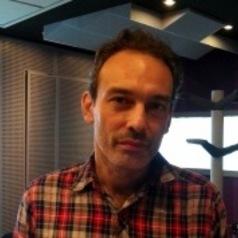
Philippe Huneman
Directeur de recherche CNRS, Institut d'histoire et de philosophie des sciences et des techniques, Université Paris 1 Panthéon-Sorbonne
Directeur de recherche l'Institut d'histoire et de philosophie des sciences et des techniques (CNRS), Université Paris 1 Panthéon-Sorbonne.
Formé d’abord en mathématiques, il s'est spécialisé dans la philosophie de la biologie, en particulier évolutive, et de l'écologie. Il a écrit de nombreux articles sur des questions relatives au concept d'organisme, à la sélection naturelle, l'écologie théorique ou aux modalités de l'explication biologique, et il a entre autres publié "Métaphysique et biologie. Kant et la constitution du concept d'organisme" (Kimé, 2008), "Pourquoi? Une question pour découvrir le monde." (Flammarion/Autrement 2020)
et codirigé "From groups to individuals" (avec Frédéric Bouchard; MIT Press 2013), "Les Mondes Darwiniens" (avec Thomas Heams, Guillaume Lecointre, Marc Silberstein; Matériologiques, 2011), "Challenging the Modern Synthesis" (Oxford University Press, 2017) avec Denis Walsh, et “Temps de la nature, nature du temps“ (CNRS Ed ) avec Christophe Bouton.
Publications disponible sur http://philippehuneman.wordpress.com
Responsable de de l'équipe "Philosophie de la biologie et de la médecine“ de l'IHPST, et du GDR CNRS Sapienv "les savoirs de l'environnement", il dirige actuellement le projet ANR-DFG "Generalizing Darwinism“ avec Thomas Reydon (Hanovre) , et prépare un livre sur le scientisme et un autre sur ce qu'il nomme "les sociétés du profilage".
Less ![]()

Philippe Quirion
Directeur de recherche, économie, Centre national de la recherche scientifique (CNRS)
Chercheur au CNRS depuis 2004
HDR de l’EHESS, 2011
Thèse de l’École des Mines de Paris, 1999
Publications : https://scholar.google.fr/citations?hl=fr&user=BN9i2acAAAAJ&view_op=list_works&sortby=pubdate
Less ![]()
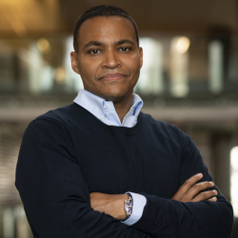
Philippe M. Frowd
Associate professor, L’Université d’Ottawa/University of Ottawa
Philippe M. Frowd is Associate Professor at the School of Political Studies, University of Ottawa, Canada. His research focuses on borders and migration, critical security studies and African politics. As part of a multi-faceted research trajectory, he has also come to research and write on issues related to the politics of surveillance and privacy for diverse audiences.
His current research focuses on the transnational governance of security, with a particular emphasis on border control and migration management technologies and policies.
He is working on two parallel projects. The first focuses on the automation/digitisation of border security in Canada through electronic visas, applications and airport kiosks. The second concerns intervention policy in and around the G5 Sahel and its place in the evolving security architecture of West Africa.
Less ![]()
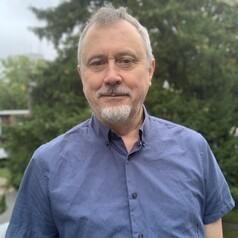
Philippe Van Cappellen
Professor of Biogeochemistry and Canada Excellence Research Chair Laureate in Ecohydrology, University of Waterloo
I joined the University of Waterloo as the Canada Excellence Research Chair in Ecohydrology in 2011. Previously, I was a Professor at the Georgia Institute of Technology and at Utrecht University. My research combines laboratory studies with field observations and theoretical developments to understand and model the processes that regulate water chemistry, carbon and nutrient cycling, microbial activity, and mineral transformations – in agricultural and urban landscapes, lentic and lotic systems, and coastal marine environments. My work further includes the detection and environmental fate and transport of trace contaminants (metals, metalloids, hydrocarbons, microplastics, nanomaterials), the calibration of geochemical (paleo)proxies, and the development of new water quality sensors. I also uses remote sensing data time series and regional climate projections to forecast future changes in lake and soil biogeochemistry
Less ![]()
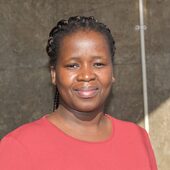
Philiswa Nomngongo
Full Professor and DSTI-NRF SARChI Chair in Nanotechnology for Water, University of Johannesburg
Less ![]()
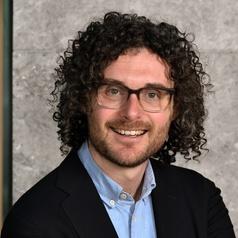
Phillip Dawson
Professor and Co-Director, Centre for Research in Assessment and Digital Learning, Deakin University
Professor Phillip (Phill) Dawson is the Co-Director of the Centre for Research in Assessment and Digital Learning (CRADLE) at Deakin University. He researches assessment in higher education, with a focus on feedback, artificial intelligence, cheating and integrity. His two latest books are 'Defending Assessment Security in a Digital World: Preventing E-Cheating and Supporting Academic Integrity in Higher Education' (Routledge, 2021) and the co-edited volume 'Re-imagining University Assessment in a Digital World' (Springer, 2020).
Prof Dawson holds a PhD in Higher Education and a first-class honours degree in Computer Science. He has more than 20 years of experience working in Australian higher education, and he has been awarded four university-level teaching awards and a citation from the Australian Learning and Teaching Council. He has led major higher education research projects funded by the Australian Research Council, the Office for Learning and Teaching, and a variety of educational technology companies.
Phill is a regular contributor to public debate on higher education. His work has been featured on ABC TV, The Australian, The Age, Times Higher Education, the BBC, VICE, Vox, the Financial Times, the Geelong Advertiser, and discussed in the Australian parliament. In his spare time, Phill performs comedy, including in the academia-themed improv show The Peer Revue, which he also produces.
Less ![]()

Phillip McGarry
Ph.D. Candidate in Experimental Psychology, University of Tennessee
Phillip P. McGarry is a Ph.D. candidate in experimental psychology and graduate fellow at the University of Tennessee. His research interests include political polarization, motivation and moral psychology.
Notable publications include (with P. J. Hampson & T. L. Hulsey), “Moral Affordance, Moral Expertise, and Virtue” in Theory and Psychology (2021) and (with R. F. Corwyn), “An Expectancy Value Theory Predicts Achievement in Undergraduate Statistics Through Academic Delay of Gratification” in Statistics Education Research Journal (2020).
Less ![]()
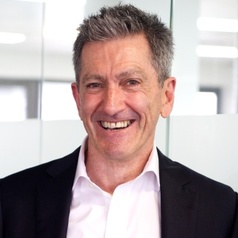
Phillip O'Neill
Professor Phillip O’Neill is Director of the Centre for Western Sydney at Western Sydney University. Previously he was Foundation Director of the Urban Research Centre at WSU, and Director of the Centre for Urban and Regional Studies at the University of Newcastle.
Phillip is a widely published international scholar with expertise relating to economic and industrial change especially in large cities.
He had held visiting research fellowships at Bristol University, The University of Massachusetts, the National University of Singapore, the University of Oxford and University College London. Phillip was Editor-in-Chief of the journal Geographical Research 2010-14. He sits on the editorial boards of a number of leading international journals and is a member of the advisory board of iBuild, a leading UK infrastructure research venture.
Phillip has held six prestigious Australian Research Council grants including his current grants which investigate Australia’s obstinate infrastructure problems and international infrastructure financing trends.
Phillip writes regular columns for the Fairfax regional and community press and is a prominent media commentator.
In recent times he has completed a 25 year outlook study of employment for Western Sydney, an investigation of mortgage distress in significantly affected Western Sydney neighbourhoods, a detailed audit of Sydney’s threatened agricultural lands, and a path-breaking analysis of Sydney's fresh fruit and vegetable supply chains.
Less ![]()
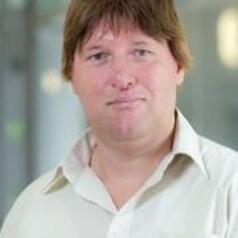
Phillip Wild
Senior Research Fellow, CAEEPR, Griffith University
Dr Phillip Wild has a PhD from the University of Queensland specialising in the field of macro-economic modelling. His main area of research since 2009 has been in Energy Economics with a particular focus on wholesale electricity market modelling of the Australian National Electricity Market (NEM), integration of variable renewables (e.g. wind, solar PV, hybrid gas-solar thermal), levelized cost modelling, the role that renewable hydrogen might play in decarbonisation pathways and network balancing, energy policy issues linked to these research topics, agent based modelling and econometric modelling of National Energy Market (NEM) spot price and load time series data.
Less ![]()
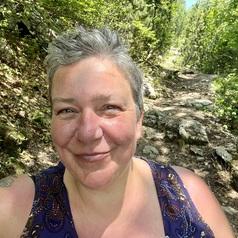
Phiona Stanley
Associate Professor of Intercultural Communications (Tourism and Languages), Edinburgh Napier University
Phiona Stanley has degrees from the University of Edinburgh (MA Honours in Politics, 1994), the University of Sydney (MEd, 2006), and Monash University (PhD, 2010); in addition, she has vocational qualifications in TESOL --RSA Cert (1993) and RSA Dip (1997)-- and the DELE Superiór in Spanish (2002). She currently works as Associate Professor of Intercultural Business Communication at Edinburgh Napier University in Scotland.
Phiona's academic publishing includes five Routledge books on topics including: Westerners teaching English in China, backpackers learning Spanish and engaging in volunteer work/staying in homestays in Latin America, and the gendered cultural pressures women experience to 'fit in' socially, even now. Methodologically, she has contributed to autoethnography, editing two books on the research method's intersections with culture/the intercultural. She has also published around 40 peer-reviewed journal articles and book chapters.
Thematically, Phiona's work is all about mobilities and about the 'intercultural' in its broadest sense: complex comings and goings of humans, non-humans, and objects in specific times and places. Within a broad focus on how cultures operate, she is particularly interested in gender, embodiment, and other normative 'rules', and in the tensions between conventionality and singularity. This has required an ambitious traversing of disciplinary boundaries and innovative cross-pollination of theory.
Less ![]()
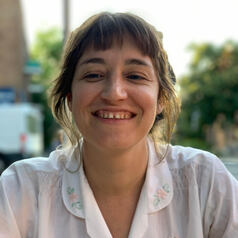
Phoebe Friesen
Assistant Professor, Biomedical Ethics, McGill University
Phoebe Friesen is a philosopher and medical ethicist working at McGill University. She thinks about ethical and epistemic issues related to the production and implementation of knowledge in the health sciences, drawing on feminist philosophy of science, ethics scholarship, and methodologies from the social sciences.
Less ![]()
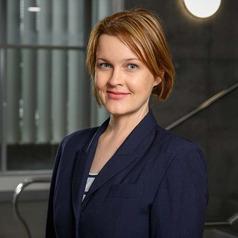
Phoebe Hart
Associate Professor, Film Screen & Animation, Queensland University of Technology
Dr Phoebe Hart is a writer, director and producer of documentaries, factual content and children’s television, an associate professor in film, screen and animation at the Queensland University of Technology, and principal of Hartflicker, a video and film production company. She is known particularly for her autobiographical road trip movie, Orchids: My Intersex Adventure. Her book Crafting Contemporary Documentaries and Docuseries for Global Screens: Documania (2024) is published by an imprint of Rowman & Littleford.
Phoebe has worked with many production companies and television networks, including Network Ten, Wildbear Entertainment, Freshwater Pictures, Vizible Entertainment, Octagon CSI, Beyond, Turner Entertainment Inc., Brisbane International Film Festival and Australian Broadcasting Corporation. Her work has been broadcast on Showtime, ARTE, Special Broadcasting Station, Nine Network, Schweizer Fernsehen, Televisión Española, UR (Swedish Educational Broadcasting Company), DBS Israel, OUTtv, Stan and ArtMedia.
In 2009 Hart was awarded her doctorate from Queensland University of Technology, of which Orchids was a central element of her doctoral studies. This documentary took six years for the principal documenters (sisters Phoebe and Bonnie Hart) to film, using a variety of cameras including semi-professional digital cameras, domestic VHS camcorders, and Super 8.
Less ![]()
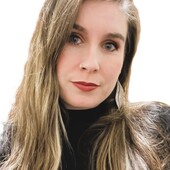
Phoebe Matich
Postdoctoral Research Fellow, Generative Authenticity in Journalism and Human Rights Media, ADM+S Centre, Queensland University of Technology
Less ![]()
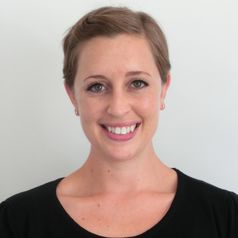
Phoebe Runciman
Postdoctoral Research Fellow at the Institute of Sport and Exercise Medicine, Stellenbosch University
Phoebe Runciman is currently a Postdoctoral Research Fellow at the Institute of Sport and Exercise Medicine, Stellenbosch University, Cape Town. She was awarded her PhD in Exercise Science from the University of Cape Town, after completing her undergraduate degree in Sport Science and her Honours degree in Biokinetics. Her primary research focusses on individuals with disability, including performance, fatigue and exercise pacing strategies of elite athletes with cerebral palsy, brain regulation and muscle activity during exercise, functional capacity and biomechanics of lower limb amputees using bionic or mechanical knee and ankle prostheses, as well as epidemiology of injury and illness of athletes with disability at major sporting competitions (Summer and Winter Paralympic Games).
Less ![]()
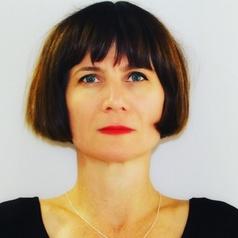
Phoebe V Moore
Professor of Management and the Futures of Work at the Essex School of Business, University of Essex
I am an internationally regarded scholar writing about technology and work, with a focus on quantified work and worker struggle. I write about artificial intelligence and its discontents; occupational safety and health and digitalisation; psychosocial pressures and the limits of algorithmic management.
Less ![]()
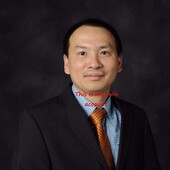
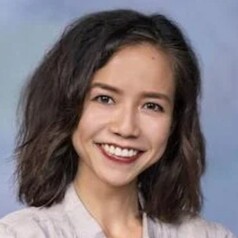
Phylicia Lee Brown
Research Scientist in Urban-Environmental Sociology, Rice University
Phylicia Lee Brown received her Ph.D. and M.A. from Rice University, with a specialization in Urban-Environmental Sociology. Her work as a spatial-quantitative scholar broadly focuses on the social production of environmental inequalities, particularly as they pertain to the intersection of toxic industrial hazards and climate change impacts. Her current research also investigates the social inequities that arise from the Federal Flood Buyout Program. Phylicia is also currently a board member at Appalachian Voices, a regional environmental and economic justice nonprofit.
Less ![]()
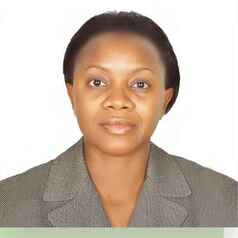
Phyllis Awor
Lecturer in Public Health, Makerere University
I am a medical doctor (MBChB) with also an MSc. in International Health and a PhD in International Health
Less ![]()
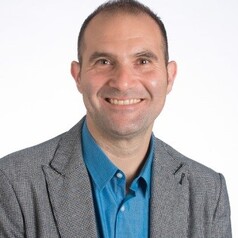
Pierluigi Mancarella
Chair Professor of Electrical Power Systems, The University of Melbourne
Pierluigi Mancarella is the Chair Professor of Electrical Power Systems at the University of Melbourne, Australia, and Professor of Smart Energy Systems at the University of Manchester, UK. His key research interests include techno-economic modelling and analysis of multi-energy systems, grid integration of renewables and distributed energy resources, energy infrastructure planning under uncertainty, and security, reliability, and resilience of low-carbon networks.
Less ![]()
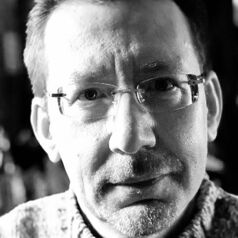
Piero S. Colla
Chargé de cours à l’université de Strasbourg, laboratoire « Mondes germaniques et nord-européens », Université de Strasbourg
Historian, Sociologist
Ph D at the EHESS Paris
Member of the Advisory consultative committee of the Council of Europe's Observatory on History Teaching
Official at the European Economic and Social Committee (Brussels)
Less ![]()
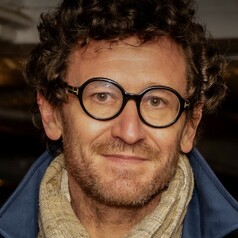
Pierre Failler
Professor in Economics and Director of the Centre for Blue Governance, UNESCO Chair in Ocean Governance, University of Portsmouth
Prof. Failler is the director of the Centre for Blue Governance. He holds the Unesco Chair in Ocean Governance. He has coordinated complex research projects with multidisciplinary teams for more than 25 years in Europe, Africa, Asia, Caribbean, and Pacific coastal countries (more than 40 to date) in collaboration with national research institutions and universities and a close link with policy bodies. He has recently coordinated the Blue Economy Strategy for the African Union, the Regional Action Plan for the Blue Economy of the Indian Ocean Commission, the Blue Economy Strategy of the Intergovernmental Authority for Development as well as the Blue Economy Strategy for Bangladesh, Seychelles, Guinea, The Bahamas, Jamaica, Madagascar and Tanzania. He has authored and co-authored about 160 journal articles and 350 book chapters, research reports, consultancy reports, etc. He is also a scientific evaluator for several research councils in the UK, Europe, North America, Africa, and Asia.
Less ![]()

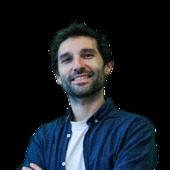
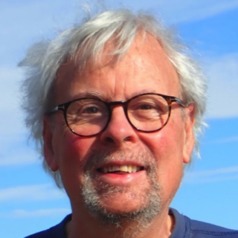
Pierre Micheletti
Responsable du diplôme «Santé -- Solidarité -- Précarité» à la Faculté de médecine de Grenoble, Université Grenoble Alpes (UGA)
Médecin, diplômé de l’Ecole des Hautes Etudes en Santé Publique.
Ill entreprend ses premières expériences à l’étranger en 1985. Sa thèse de médecine (1986) porte sur « La politique de l’enfant unique en République Populaire de Chine », à l’occasion d’un séjour au « Sichuan Medical College » de Cheng Du.
Il rejoint Médecins du Monde (MDM)en 1987 comme chef de mission au Guatemala. Il devient le directeur des programmes de MDM en 1996, puis sera élu à la présidence de 2006 à 2009.
De 2008 à 2020 il enseigne à l’Institut d’Etudes politiques de Grenoble où il codirige le master « Politiques et Pratiques des Organisations Internationales ».
Il est l’auteur de nombreux articles dans la presse écrite nationale.
Autres fonctions occupées dans le champ de la santé :
• Directeur de la santé de la ville de Grenoble (2000-2008)
• Conseiller technique et membre du Directoire de l’hôpital psychiatrique de St Egrève (2009-2014)
• Président de l’Association des Centres de Santé (Agecsa)(2009-2014)
• Vice-président de la Fédération Nationale des Centres de Santé (2010-2012)
• Président de la Commission santé et membre du Conseil d’Administration de l’Uniopss (2012-2016)
• Membre du Conseil National de la santé mentale (2014-2016)
Dernier ouvrage paru : « 0,03 % : pour une transformation de l'aide humanitaire internationale », éditions Parole, septembre 2020.
http://pierremicheletti.parolesautourdunlivre.fr
Less ![]()
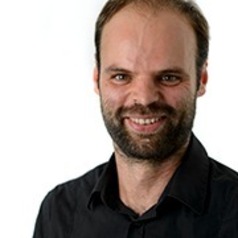
Pierre Rognon
Associate Professor, University of Sydney
Pierre Rognon is Associate Professor at the School of Civil Engineering, the University of Sydney.
His research focuses of the mechanical behaviour of granular matter such as sands, soils, ores and grains and its many applications in geomechanics and engineering.
Less ![]()
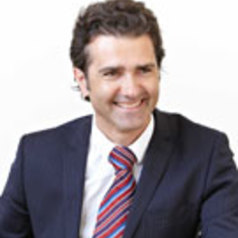
Pierre Sinclair de Gioia Ca
Associate Professor of Business Law, Heriot-Watt University
I am currently Associate Professor of Business Law at the School of Management and Languages at Heriot Watt University, Edinburgh, where I started as lecturer in 2008. I was appointed Associate Professor in 2012. I have a permanent basis contract and I work full-time.
I am currently course-leader of International Banking and Financial Law (fourth your, honours’ level) and Employment Law (third year). In the past I have also been in charge of courses in Company Law at the Dubai Campus (2008/2009), International Trade Law (2012/2013) and a course of Law in HR Management (2008 to /2015). I am a Fellow of the Higher Education Academy (FHEA; since 2010) and a member of the Scottish Graduate School of Arts and Humanities (since 2014).
In 2012, I won the student award at HWU for ‘Best Lecturer, Innovative Feedback’ and in 2014 I was awarded the prize as ‘Most Supportive Lecturer’ in the Business Management Department. In 2015, I have just completed the ‘treble’: I won the University special ‘Suave Award’. Prior to my appointment at Heriot-Watt University, I was tutor at the University of Edinburgh – Law School, in both contract law and tort, and visiting lecturer in Business Law I and Business Law II at Glasgow Caledonian University.
Graduating in Law from the University of Bari, Italy (summa cum laude) I then went on to complete my Ph.D. in Banking and Financial Law (Siena). I also have an LL.M. in European and International Trade Law (with distinction; Glasgow Caledonian University), a MSc in Banking and Finance (Siena) and a PGCAP (Post-graduate Course in Academic Practice; Heriot-Watt University). Additionally, I have a Diploma in Classical Studies (Lyceum Gymnasium 60/60). I am qualified as a lawyer in both Italy (Avvocato) and Scotland (Solicitor and Notary Public).
Following the completion of my Law degree I worked as a lawyer in the legal department of a number of large corporate banking and financial institutions (IMI, SAN PAOLO IMI, Deutsche Bank, where I was the head of the Corporate and Investment Banking Legal Department) as well as for the international Law Firm Baker & McKenzie (where I was Senior Associate in the Practice Group Banking, Finance and Securities). Latterly, I have worked and I am still working independently as a legal advisor and advocate providing legal assistance in the negotiation of international commercial and financial contracts (derivatives, credit derivatives, loans, syndicated loans, securitizations) to a number of corporations and financial institutions in Europe. I also provide advice in structured finance (securitizations) and capital markets transactions (M&As, take-overs, IPOs).
To date, I have contributed to more than 50 publications in the area of Business Law, with topics spanning Banking and Financial Law, Company Law, Employment Law and the Comparative Analysis in law. In 2014 I wrote with Matthias Haentjens, professor of Banking Law at the University of Leiden Law School, a textbook in European Banking and Financial Law; the book has been published by Routledge UK in June 2015. I am a member of the Editorial Board of both the Rivista Trimestrale di Diritto dell’Economia.
At Heriot-Watt University, I have been the Director of the Business Management Degree Programme since 2011. In the last 7 years, I have promoted and finalised the conclusion of partnerships with a number of Universities, among the others: Carlos III; Ca’ Foscari University of Venice; Ludwig Maximillian University Munich.
I have been Visiting Scholar in Banking and Financial Law at the law school of the University of Leiden (Hazelhoff Centre for the Financial law) since July 2014. I am also Professor of the Ph.D. School in Employment Law and Human Capital Formation at the University of Bergamo and Adjunct Professor of International Financial Law, at the University of Padua (‘MASCI’ post-graduate programme in International Commerce). In academic year 2014/2015, I was appointed visiting lecturer in labour law at the Law School of the University of Stirling, where I delivered an entire course to 20 students. At Ca' Foscari, University of Venice, I have been Visiting and Adjunct Professor in Mergers and Acquisitions (Law) since 2015.
I am fluent in English and Italian and conversant in both French and Spanish and I am dual citizen (British and Italian). I learned Latin and Ancient Greek for five years when I was at the Gymnasium. I still love the reading of the Roman classics in their original languages.
Less ![]()
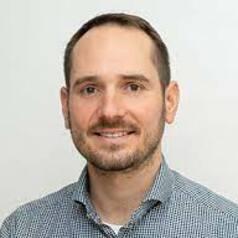
Pierre Stallforth
Professor of Bioorganic Chemistry and Paleobiotechnology, Friedrich-Schiller-Universität Jena
Pierre studied Chemistry at the University of Oxford, UK. He obtained his PhD under the guidance of Prof. Peter H. Seeberger at ETH Zurich. He then moved to Harvard Medical School where he did his postdoc in the laboratory of Prof. J. Clardy. In December 2013, he moved to the Leibniz-HKI as an independent Junior Research Group Leader. In January 2020 he was promoted to head of the Department of Paleobiotechnology. Since December 2021 he is a Professor of Bioorganic Chemistry and Paleobiotechnology at the Friedrich Schiller University Jena.
Less ![]()
- Market Data























